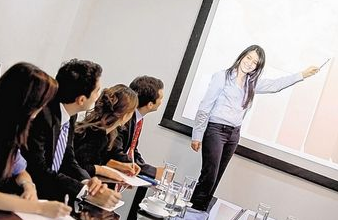Regardless of industry or profession, one of the many common experiences we all have is the JOB INTERVIEW.
All of us have probably been the interviewee many times in our professional lives. Additionally, many of us have also been the interviewer or the facilitator of interviews as well.
So, it’s time to FLIP THAT INTERVIEW. Here are a just a few things you could easily incorporate or adopt (however, the overall challenge is for you to make it different and make it your own):

All of us have probably been the interviewee many times in our professional lives. Additionally, many of us have also been the interviewer or the facilitator of interviews as well.
Although there are exceptions, much of what we do in interviews seems to have been fairly traditional and unchanged for years. Essentially, candidates for a particular job are invited to appear before an individual, or typically a panel of people, to answer a series of often generic questions.
For far too many years, we have been hearing, or even delivering, questions such as the following:
* Tell Us About Yourself
* Where Do You See Yourself In Five Years?
*What Are Your Strengths & Weaknesses?
*Tell Us How Your Work With Others
*Tell Us About A Work-Related Conflict and How You Resolved It
* Tell Us About Yourself
* Where Do You See Yourself In Five Years?
*What Are Your Strengths & Weaknesses?
*Tell Us How Your Work With Others
*Tell Us About A Work-Related Conflict and How You Resolved It
Whether we are the interviewee, or the interviewer, our goal should be to make the interview experience an engaging and relevant one that not only produces the best candidate(s), but also the best mutually beneficial process.
So, it’s time to FLIP THAT INTERVIEW. Here are a just a few things you could easily incorporate or adopt (however, the overall challenge is for you to make it different and make it your own):
Expand The Panel. For educators, make sure you have students, parents, teachers, business leaders and community members. Get a truly diverse group with different backgrounds and perceptions.
 I
I
Include Presentation(s). Interviewees need to be more participatory. Sitting and answering questions can be rather passive in the end. Instead of a long list of questions, consider giving candidates a prompt or two ahead of time that address the organization’ vision and needs. Then, allow the candidate to truly shine and own the process (at least potentially).

Presentation Only. What if there were no panel questions? What if we challenged candidates with a couple of large questions related to the position and organization and allow them to individually customize their story and how it connects? These presentations would naturally allow for relevant follow-up questions
Asking Questions Versus Answering Them (The No Interviewing Interview). What if candidates had to come to the panel and ask questions. Their questions would reveal a great deal about their knowledge, experience, desire, readiness and more. Again, panel could have follow-up. But imagine evaluating candidates on their questions versus their answers.

Open-Ended Questions Versus Prepared Close-Ended Questions. This will drive HR people up the wall as they have an unhealthy addiction to uniformity and duplication. But dream for a minute……..what if members of the interview panel generated appropriate, open-ended questions based on a candidate’s resume, application, presentation, etc. If you interview most interviewees or panel members about interviews, both will often say the open-ended, more discussion-oriented questions generated the most meaningful information and mutual understanding.
Presentation Prompt. Instead of an on-the-spot writing challenge (which could still have some value), what if they had to create a brief, multi-slide presentation based on a prompt they receive 20 minutes prior to the interview. They prepare, Iron Chef style, and then present to the panel. It would demonstrate knowledge, experience, skill, professionalism, creativity, organizational awareness and much more.

Starbucks Screening. Instead of paper screening or several rounds of interviews, what if a panel holds a series of 30-minute chats at a local Starbucks of Coffee Spot (Hip, International Organizations would do these at a pub or sidewalk cafe complete with other beverages). The idea is that instead of a potentially generic experience in a sterile, often nervous environment, let’s let everyone meet socially and truly have a discussion.

Starbucks Screening. Instead of paper screening or several rounds of interviews, what if a panel holds a series of 30-minute chats at a local Starbucks of Coffee Spot (Hip, International Organizations would do these at a pub or sidewalk cafe complete with other beverages). The idea is that instead of a potentially generic experience in a sterile, often nervous environment, let’s let everyone meet socially and truly have a discussion.
Like in so many of our professional efforts, it’s time to re-evaluate many of our time-honored practices. Interviews are important. Indeed, they are important enough to update and make as relevant as possible. Interviews should be powerful experiences for all those involved. This could be easy and fun to do. They are not only a time for candidates to show who they are. It’s also time for organizations to show who they are.
(photos courtesy of Foter)
Love this idea!!! Really pushes both future employees as well as the perspective hirer as well!!
ReplyDeleteThat's an impressive post.
ReplyDelete